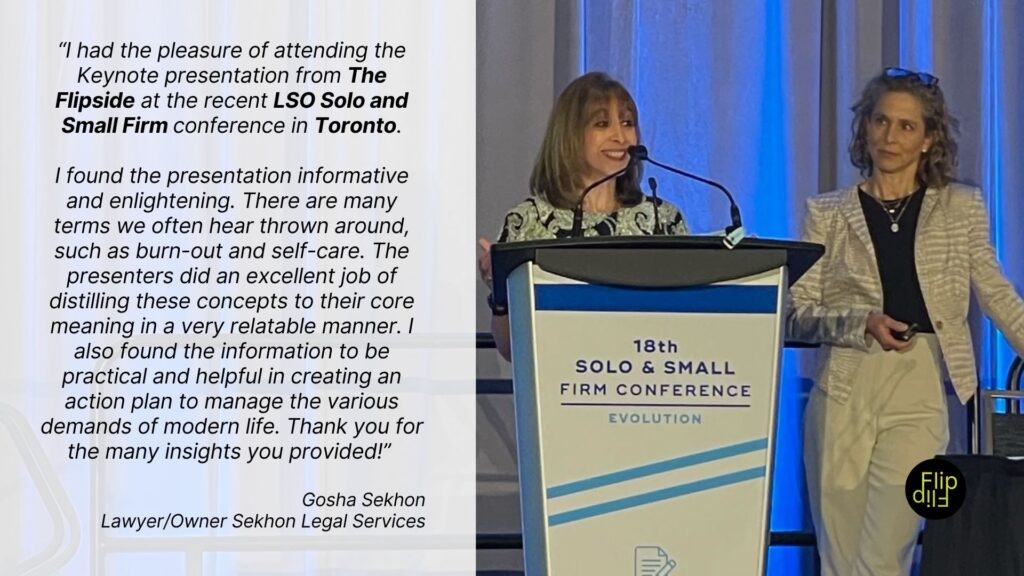Brain
Looking for work-life balance? Find a Hobby

When the issue of work-life balance arises, we usually look for an answer elsewhere other than ourselves. We perhaps expect that our employer will provide us with opportunities to break from work, reduce our workload, or even create opportunities for social connection with our colleagues, such as happy hours scheduled every month, lunch and learns, or events outside the office. However, the reality is that finding work-life balance is on us—on each one of us—and there are many things we can do to create a balance that works for us.
Taking Ownership of Work-Life Balance
On that note, a hobby may seem like an unachievable goal when you are working 80 hours a week while also trying to enjoy and manage your personal life, which may involve a family with kids. Nevertheless, a hobby is one of the many things that will help you create some balance between your professional and personal life.
In a Harvard Business Review article, Scott Behson defined a hobby as “the intentional, purposeful use of the time you do have for yourself (however short that window may be).” The first thing to note is that he refers to the time that “you do have for yourself.” I think this is a very important starting point: carving out some time for ourselves. However, many people think that this time needs to be long to be significant when, in fact, any time you can carve out for yourself will be significant to the extent that you put it to good use.
The Role of Hobbies in Balance
Finding a hobby has enormous benefits, especially for your mind and your brain. When we find an activity that we love to do and take time to practice it (as little or as long as we can), we will most likely enter into a state of flow, also referred to as entering “the zone.” The notion of the flow state was studied in-depth by the father of Positive Psychology, Prof. Mihaly Csikszentmihalyi, who described the state of flow as “being completely involved in an activity for its own sake. The ego falls away. Time flies.” Ask yourself, have you ever been consumed by a task you enjoy that you find yourself so immersed that time goes by without you noticing? I am sure you have.
Hobbies are one of the many ways in which we can achieve a state of flow. Being immersed in a task that we enjoy for 5 minutes or 5 hours has innumerable benefits:
- Our stress levels are reduced. By focusing our brain on a particular enjoyable task, our minds stop wandering towards other thoughts, be those professional or personal.
- It is another form of practicing mindfulness that is different from meditation. While in a state of flow, you are present in the moment performing the task at hand.
- It helps practice focus. Similar to the benefits listed above, a state of flow forces our brain to focus on a particular activity, which helps our brain to increase its ability to focus and concentrate.
Embarking on the Hobby Search Journey
Despite all these benefits, when life is busy, thinking about adopting a hobby seems unreasonable or unattainable. But like everything in life, if you are genuinely interested, you will carve out time in your busy schedule and create space for that activity that you love so much.
But what happens if you don’t have a hobby? Well, hobbies won’t come find you. You have to actively search for them, and yes, this will require a little more time while you explore different activities and try new things until you find one that which works for you.
A starting point for finding a hobby is asking yourself what you liked to do when you were younger. Perhaps you liked to read, and you realize it has been years since you read your last book. Perhaps you liked to play an instrument or spend time with coloring books or take pictures. Or perhaps you were “crafty” and liked to play around with different materials to make crazy structures.
Looking back is a great place to start. Exploring the available activities in your nearby community center is another excellent way to search for interesting activities. The plus side of this option is that enrolling in a class will also provide you with an opportunity to connect with other people who share the same interests. This is certainly a win-win situation.
Keep in mind that you won’t gain the benefits of hobbies unless you commit to them. Carve out regularly scheduled times for hobbies and protect that time as you would an important business meeting or family matter.
If you are reading this article and you have a busy family life and professional life, I encourage you to think about having a hobby as a need and not a luxury. Be curious and explore different things. It may take a while to find that activity that will make you flow, but once you find it, you won’t regret it.
Happy searching!
MV





